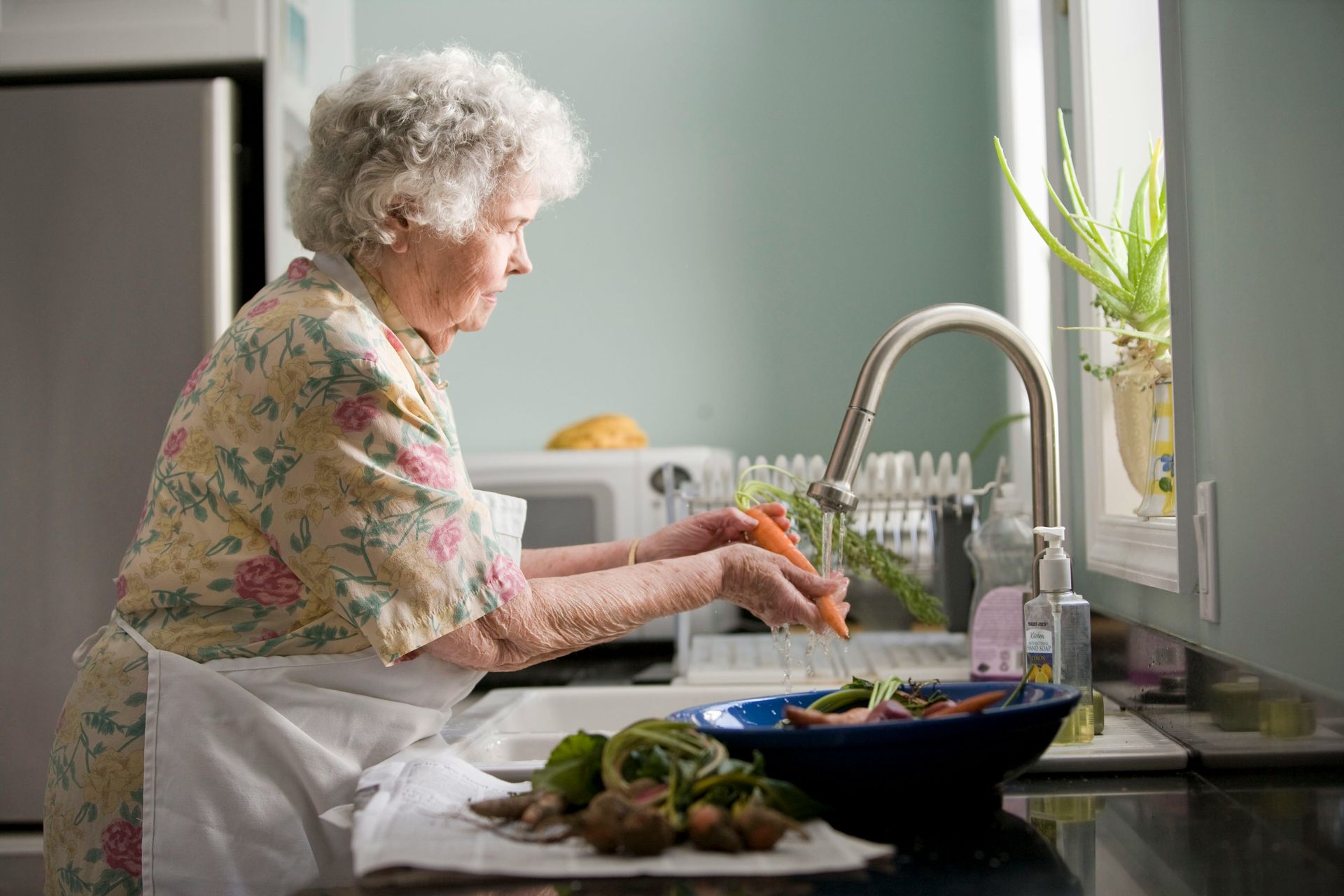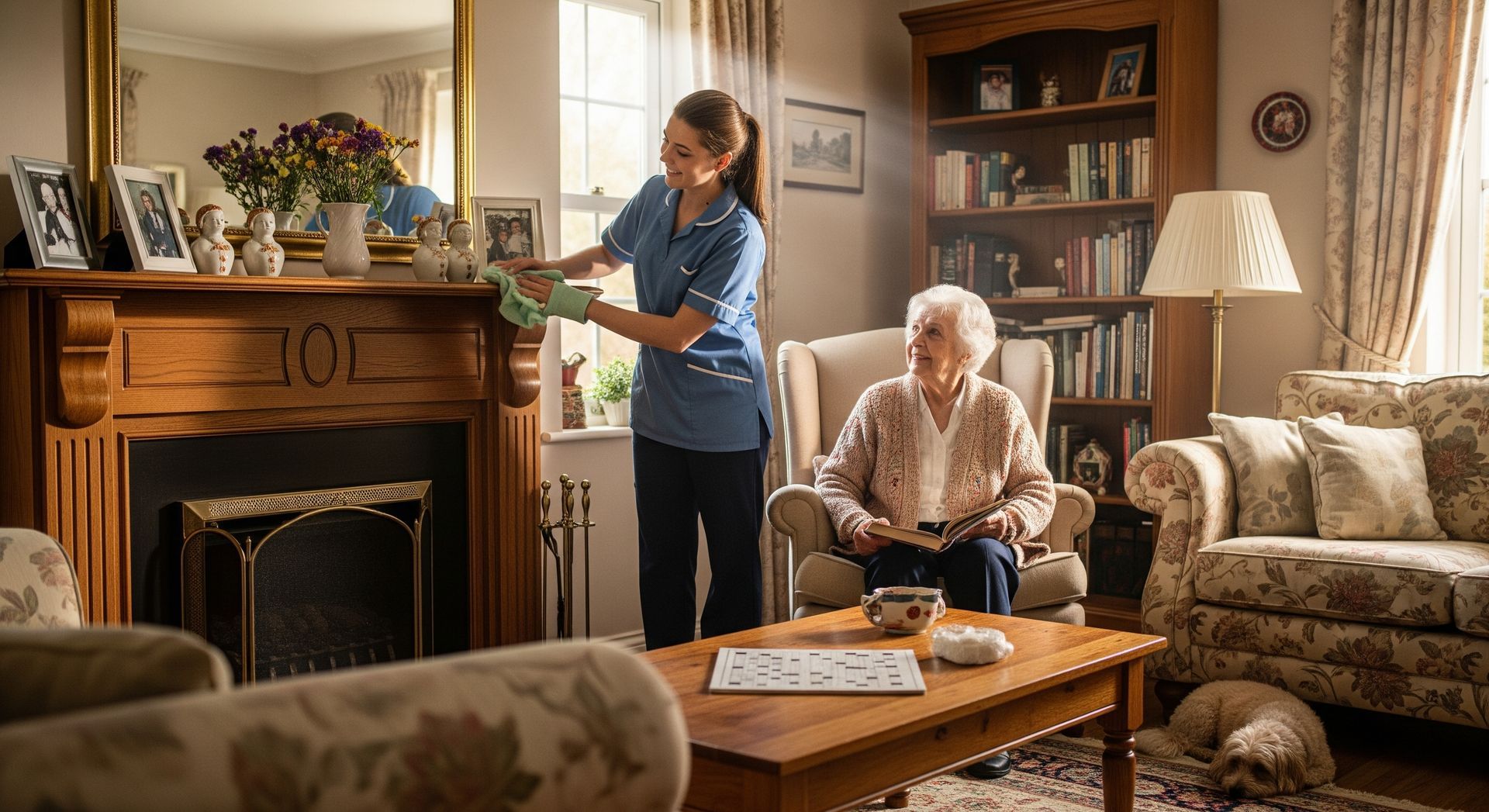The Difference Between Home Care and Home Health Care
Key Takeaways
- Home care focuses on non-medical support like daily living tasks and companionship in a person’s home.
- Home health care provides skilled medical services such as nursing, therapy, and medication management.
- Caregivers deliver home care, while licensed nurses and therapists perform home health care.
- Home care supports comfort and independence; home health care addresses medical treatment and recovery needs.
- Choosing between them depends on whether the individual requires personal assistance or professional medical care.
Defining Home Care
Home care helps people stay comfortable and safe in their own homes instead of moving to a hospital or nursing facility. It offers personalized and emergency assistance with daily living tasks like cooking, cleaning, or sharing conversation.
Home care focuses on making life easier and more enjoyable while respecting your
unique needs. Whether you need help getting dressed, running errands, or relaxing with a
caring friend, it keeps your home
safe and welcoming every day.
Understanding Home Health Care
Unlike home care, home health focuses on medical needs and treatments that require professional support. Skilled nurses and therapists visit your home to help you recover or manage ongoing conditions.
Everything begins with a patient assessment, where professionals evaluate your health and create a personalized game plan tailored to your situation. It’s not just about daily chores but about real medical attention, including services like wound care, medication management, and physical therapy.
Home health teams work closely with your doctors to keep you well and comfortable.
Healing's easier when it happens in your own familiar and peaceful surroundings. Feel free to check out
trusted resources for senior care and caregiver training to learn more.
Key Differences in Services Provided
Looking closely at each service shows clear differences. Home care focuses on personalized assistance with daily activities like homemaking and getting dressed. It helps with the small things that make life easier and keeps you comfortable at home, like having a reliable companion nearby.
Home health provides medical attention, including skilled nursing, therapy, and monitoring health conditions. It starts with a thorough patient assessment, leading to a personalized game plan for your care. Services often include medication management and support for recovery after surgery, ensuring that healing's easier in familiar surroundings.
Both services aim to keep you safe and cared for, but home care handles everyday living, while home health focuses on medical needs, helping you stay part of a community that understands your unique situation.
Types of Professionals Involved
The people who come into your home play a big role in your comfort and well-being. In home care, you’ll meet caregivers who handle everyday tasks like cooking, cleaning, and offering companionship. Their focus is on making daily life smoother and more comfortable.
Home health care involves professionals trained to deliver medical care in your own space. This includes nurses, physical therapists, and speech therapists who bring their expertise right into your living room.
While home care helpers focus on non-medical support, home health care professionals manage clinical needs. Together, they ensure you get the
right kind of help, whether you need a friendly chat or skilled health services.
Typical Situations for Choosing Each Option
If you’re new to this world, deciding between home care and home health care depends on the kind of support you need. Home care focuses on help with daily activities like meals, errands, and companionship. Home health care, in contrast, is for medical needs such as wound care or physical therapy.
Here’s a quick look at typical cases where each fits best:
| Home Care Scenarios | Health Care Situations |
|---|---|
| Helping with dressing and grooming | Managing diabetes with insulin shots |
| Providing companionship and errands | Post-surgery rehabilitation |
| Assisting with meal prep and light housekeeping | Monitoring essential signs and meds |
Costs and Payment Methods
The costs of home care and home health care can feel overwhelming. Home health care often comes with better insurance coverage because it involves medical services ordered by a doctor, allowing Medicare, Medicaid, or private plans to help cover expenses.
In contrast, home care, focused on daily living support, usually isn’t covered by insurance, leaving you to pay out of pocket or seek help through financial assistance programs. Many community resources and non-profits exist to ease these costs. Exploring your options carefully makes managing expenses much less stressful.
How to Decide Which Care Is Right for Your Loved One
To choose the right type of care for your loved one, begin by assessing their specific needs and the level of caregiver expertise required. If they need medical support, home health care with skilled nurses may be the best option. For assistance with daily activities, home care might be sufficient.
Here’s a quick guide to help you decide:
| Care Type | Care Needs | Caregiver Qualifications |
|---|---|---|
| Home Care | Assistance with chores, meals, companionship | Trained aides or caregivers |
| Home Health Care | Medical care like injections, therapy, wound care | Licensed nurses and therapists |
| Mixed Care | Combination of both | Team with varied qualifications |
Frequently Asked Questions
Can Home Care Services Be Customized Daily?
Yes, home care services can be tailored each day to match your routine and changing needs. Caregivers work closely with you to adjust support, helping you stay comfortable and independent at home.
Are Pets Allowed During Home Health Care Visits?
Most caregivers welcome pets during home health care visits, as pets often provide comfort and reduce stress. However, it’s a good idea to check with your care team to make sure it fits safely into your care plan.
How Do Agencies Ensure Caregiver Background Checks?
Agencies use strict hiring practices, including background checks and reference verification, to ensure caregivers are skilled, trustworthy, and safe to welcome into your home.
What Technology Is Used in Home Health Monitoring?
Home health monitoring uses tools like telehealth video calls, remote devices for tracking vital signs, and digital records to keep your health information accessible to you and your care team.
Can Home Care Providers Assist With Transportation?
Yes, many home care providers help with transportation for errands, medical appointments, or social activities, ensuring you stay connected and safe while getting where you need to go.
Final Thoughts
Choosing between home care and home health care is like deciding between a cozy blanket and a first aid kit. One offers comfort and in-home support with everyday needs, while the other provides essential help for medical needs when they arise. Understanding these differences makes it easier to choose the right care for your loved one, ensuring they get the support that suits them best.
With SCC At Home, we can help you find that perfect balance, whether your family needs extra hands for daily tasks or skilled professionals for
medical care.
Contact us today to discuss how we can bring comfort and expert support right into your home.








